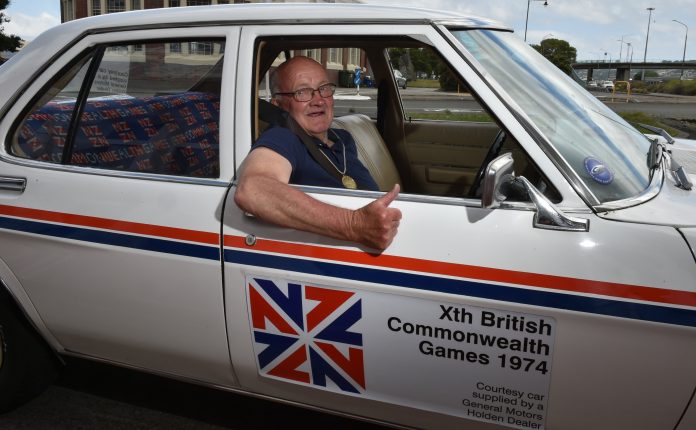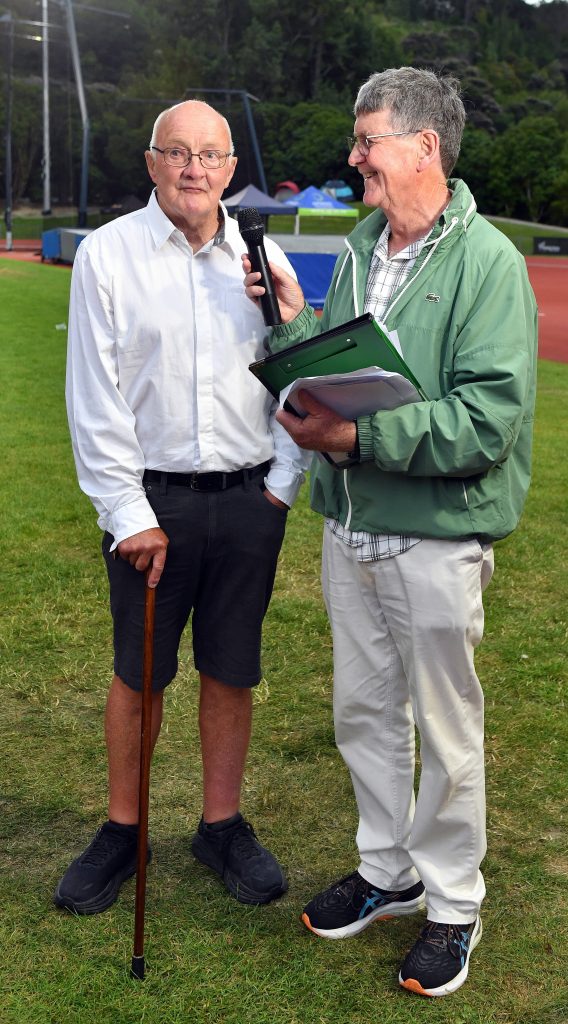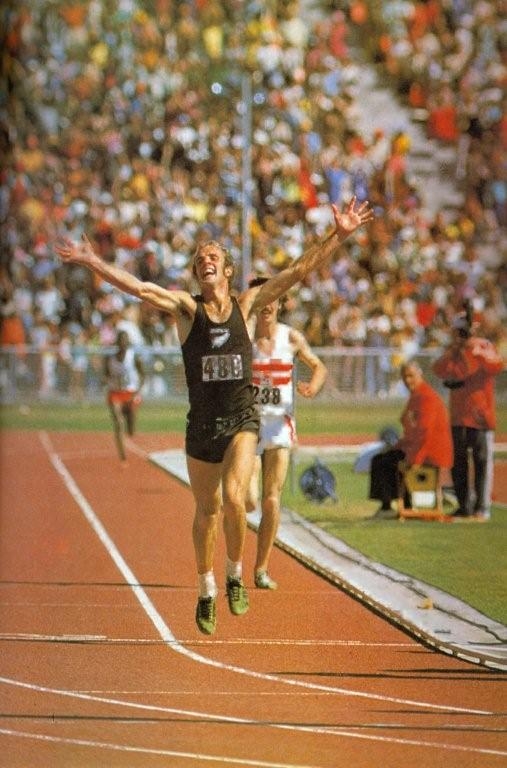
Flat on his back and looking to the heavens, South Canterbury’s own Richard ‘‘Dick’’ Tayler never could have imagined the impact his victory in Christchurch would have on New Zealand sport 50 years on.
Born August 12, 1948 in Timaru, Tayler became a household name when a late surge saw him claim the 10,000m gold medal at the 1974 Christchurch Commonwealth Games, exactly 50 years ago today.
Tayler said to mark the halfcentennial of the race he planned to donate his gold medal to Timaru Boys’ High School to be placed in the library, where as a boy he had been inspired himself.
‘‘I spent a lot of time looking at the history of the old boys and the medals of Pat Boot and Jack Lovelock, so for me to be able to have mine in there will be very special. I never thought one day I’d have a medal in there.
‘‘It was nice being a boy from South Canterbury and carrying on the tradition of Boot, Lovelock and Timaru Boys’ High.’’
He said as a boarder at TBHS, there had been a compulsory run every morning.
‘‘I’d try to beat the older boys every morning round the block, and I enjoyed running in South Canterbury, I enjoyed running around Timaru — I spent a lot of time running in the scenic reserve and at the beach on Caroline Bay.
‘‘The Lovelock Open was also big for me; Jack Lovelock was a big motivating factor.’’
Looking back on the big day, Tayler said a lot of it was down to the coaching of the legendary Arthur Lydiard.

‘‘About four days before, I ran a mile, Lydiard read out the lap times and I went 4min 3sec, I was over the moon. ‘‘I found out later that I actually ran 3min 57sec — Lydiard never ever exposed to me or anyone else how well I was going. He knew I was going well but he just had to work on the old head and get that right, which he was able to do.
‘‘It’s incredible having a good coach like Arthur Lydiard.’’
After being held back from attending the opening ceremony by Lydiard, a strategy meeting was held in the Bush Inn Hotel. Tayler was told the lap times Lydiard wanted him to hit. Overall it was 45 seconds faster than he had ever run before; 27 minutes and 45 seconds was the goal.
He was told to just hit the lap times and the race would sort itself out.
Race day came around and the 10,000m athletes were called to the track, but Tayler was once again held back by Lydiard and instructed to jog around for a bit longer before heading into the stadium. After a surprise visit from an undercover Peter Snell, Tayler was ready.
He said for the first time he was not nervous.
‘‘All I knew was I was going to run my best time and that would be a New Zealand record and a Commonwealth record, so what else can you ask for?’’
By the halfway point he was 80m behind, but kept on with his own pace.
‘‘All of a sudden they started coming back and it wasn’t because I had sped up — that was a nice feeling. Every lap I could see the gap getting smaller, 80 became 70 and 70 became 60 and so on.’’
Eventually catching the pack, Tayler was right in the mix.
‘‘It was so tempting to go earlier, but I waited and waited because Lydiard had said if you are amongst it don’t go until you are 300m out.’’
When it was down to just Tayler and Englishman David Black, Tayler surged ahead to the finish, taking the gold with a time of 27:46sec — just one second over Lydiard’s instructed time.
With the 1974 Commonwealth games being the first sporting event in New Zealand to broadcast in colour, the images of Tayler jumping for joy and lying flat on his back were forever etched into New Zealand sporting history.
He said thankfully it was one of the days where he got it right.
‘‘I had failed before [at games in Munich and Edinburgh], and when you pull on a New Zealand singlet you don’t want to fail and I had, so it was payback time for my country.
‘‘It was a big plus getting to do it on home soil as well, because most of the Kiwi athletes have their day in the sun overseas.’’
Mr Tayler said it surprised him how much his victory was still remembered.

‘‘Everyone I’ve met over the last 50 years has got their own story about that day, and I just didn’t realise it would have such an impact on people and last for so long.
‘‘It’s just one of the things where I don’t know how a guy like Lydiard could take a guy like me and have him take on the world’s best and beat them, there was just a whole lot of different things that made it leave an impact on people.’’
With the world at his feet and while training for the 1976 Montreal Olympics, Tayler’s athletic career was abruptly cut short due to ankylosing spondylitis — a form of arthritis that generally only occurs in highly-fit individuals. He was unable to recover to continue competing at the highest level.
After his retirement he has spent time as a motivational speaker and as president of the Canterbury Rugby Supporters’ Club, and in the last few years was named patron of the Otago Athletics Club.
He recently attended the New Zealand 10,000m Championships in Dunedin to celebrate the 50-year milestone.




